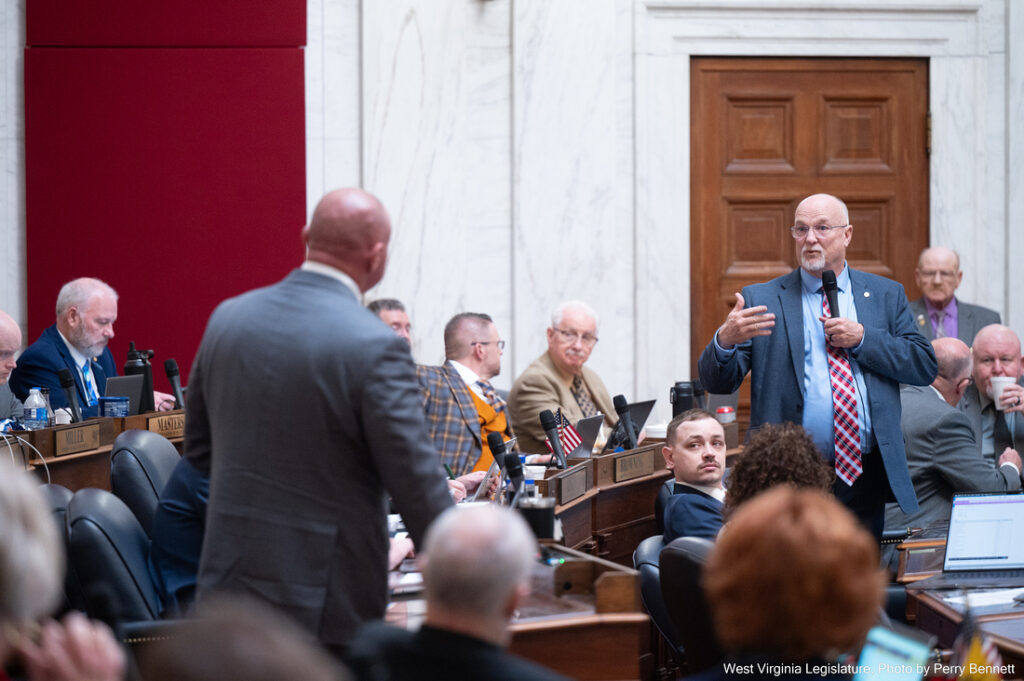A policy that grants land reuse groups purchasing priority during the sale of tax-delinquent, derelict properties has received wide support in the West Virginia Legislature.
Under current state law, land banks and land reuse groups get first crack at buying properties placed under public auction for tax delinquency. These are groups that identify properties in poor condition and restore or sell them for public use — creating new spaces for things like housing or commercial development.
The policy is set to end in July, but Senate Bill 538 would remove the sunset date and make the policy permanent. The bill passed the West Virginia Senate on March 19, and received the stamp of approval from the West Virginia House of Delegates by a vote of 88 to 10 on Thursday, with two members absent or not voting.
During discussions on the House floor, Del. Chris Phillips, R-Barbour, said the bill would reduce the number of derelict properties across the state.
“It’s to help clean up chronically dilapidated properties,” he said. “It’s really aimed at frequent flyers or landowners in the state that keep purchasing these properties, letting them further and further degrade.”
But Del. Bill Ridenour, R-Jefferson, said he worried the bill was prioritizing certain entities.
“We’re allowing certain entities to have first right. Why are we doing that?” Ridenour said. “This, to me, looks like we’re giving advantage to certain entities without giving advantage to the public at large.”
But Phillips said the policy has helped clean up properties statewide at a rate faster than possible for private entities.
Speaking in favor of the bill, Del. Carl Roop, R-Raleigh, also said that land reuse groups can restore a property and then sell it publicly, returning it to the market in a better condition.
“This will give us a way of cleaning up the property, getting the property back on the tax rolls, and letting other people throughout the community buy the property,” Roop said.
Ultimately, a majority of the chamber voted in favor of the bill. It now returns to the Senate for one last review before getting sent to the governor’s desk for final consideration.






















